The best writers have said very little, and the worst, far too much.
— Bukowski
Contemporary society is overrun with self-proclaimed “poets” who relish in the title yet produce very little poetic fire. Much of what parades as poetry these days reeks of self-pitying confessions dressed up in the garb of “artistic expression.” It fixates on the temporal and panders to the superficial trends and fragile sensitivities of an identity-obsessed culture.
Much of today’s poetry is little more than an indulgence in personal idiosyncrasies, which is why it’s all so bloodless and cerebral and stripped of any potency to shake up or jolt the soul. Unsurprising, I guess, in this navel-gazing age where “personal identity” is exalted like a sacred idol and the sanctuaries of creative thought have been battered by suffocating ideologies.
With the rise of social media, we’ve seen the advent of a new, frivolous fad called "Instapoetry"— a form of cliché-ridden verse crafted for quick consumption and visual appeal. This kind of quaint, fashionable poetry, so beloved by the unlettered crowd, caters to fleeting emotions, trading the depth and substance of true poetry for the sleek ease of a scrollable screen.
Shaped by platforms that reward brevity and simplicity, this poetry often eludes the intensity of meaningful engagement with complex themes, favoring instead a surface-level aesthetic that comforts but seldom provokes or challenges the inner life.
In a fantastic article by Brooke Clark titled, The Narcissism of Contemporary Poetry, he writes:
Narcissism is an infinitely renewable resource, and people won’t stop writing poems about their own experiences and emotions. In fact, in just the last few years, platforms like Instagram have enabled a significant increase in the number of people reading and writing poetry. This creates a broad but shallow poetry world, with more and more people all doing the same thing: talking about themselves. Expanding the echo chamber is great, but it’s still an echo chamber.
Many of today’s so-called poets perceive the world through a distorted, solipsistic lens. They cling desperately to their own small, parochial dramas, abandoning the sweeping, universal currents that give poetry its true power and resonance. They’re mired in the shallow muck of their own egos, too afraid or too blind to plunge into the depths of their being where the transcendental gold waits to be unearthed.
Contemporary poets seem to have completely lost sight of the timeless wisdom of the great masters. T.S. Eliot famously observed that "poetry… is not the expression of personality, but an escape from personality…the progress of the artist is a continual self-sacrifice, a continual extinction of personality”.
Eliot's misconceived notion of escaping personality is not about abandoning the self but rather delving deeper into it. Many mistakenly conflate personality (a sort of actor's mask) with the self, treating them as identical. By "self," Eliot refers to something akin to a spiritual medium — “for my meaning is, that the poet has, not a ‘personality’ to express, but a particular medium, which is only a medium and not a personality, in which impressions and experiences combine in peculiar and unexpected ways.”
Of course, this does not mean the poet suppresses or blots out the innate dimension of memory, feelings, and emotions. Rather, the poet refines and channels them into a form that rises above their private experience. As Eliot explains in "Tradition and the Individual Talent" (1919), the poet “surrenders himself” to the work, allowing the poem to stand apart from the poet's personality.
Coleridge spoke of poetic genius as the "participation of a common spirit." For Percy Bysshe Shelley, poetry is "the expression of the imagination," the faculty by which the poet transcends ego, transforming self-love into universal love.
Shelley again:
Poetry defeats the curse which binds us to be subjected to the accident of surrounding impressions [and] reproduces the common universe of which we are portions and percipients, and it purges from our inward sight the film of familiarity which obscures from us the wonder of our being.
Poetry today often feels stale and unoriginal because so many writers, caught in the whirlwind of a screen-driven, consumerist culture, prioritize instant recognition over true depth. They conform to popular tastes, trading raw, metaphysical insight for shallow, crowd-pleasing sentiments, leaving the spirit unfed.
But as Albert Camus warned: “If it adapts itself to what the majority of our society wants, art will be a meaningless recreation.”
It is little wonder that the content of today’s poems, shaped by the hollow echoes of mass culture, lacks the metaphysical nourishment essential to the spirit. This monotonous mainstream verse captures only flimsy sentiments, depicting life as a prosaic routine confined within the profane boundaries of a hyper-commercialized world entirely devoid of spiritual acuity or transcendence.
What does it mean to be a poet?
The true poet’s ultimate quest is to not simply express themselves but express beyond themselves — to reach above the delicate dimension of identity, to pierce through the veil of appearances, and to grapple with the eternal truths that flow like a hidden river beneath all things.
The essence of all true poetry lies in its ability to transcend the mask of the self, to rise above the facade of personality, and speak from the eternal soul within. It bridges the creator's solitude and humanity's infinite spirit, carrying the secret flame of one heart into the boundless unity of all.
Poets are not the wielders of creative power; they are its vessels, possessed and guided by forces greater than themselves. They give form to the primordial symbols of the unconscious, shaping the raw, shadowy dreams of the human soul into tangible expressions of beauty and truth. Through them, the formless is made real, and the hidden depths of existence are brought to light.
A true poet is a rarity, "a unique and valuable asset to this planet," an "unconscious herald of the primal word," the “priest of the invisible," perceiving what others cannot, their vision transcending the narrow confines of the crowd. The poet stands electrified, unfiltered, and in unwavering awe before the universe's profound mysteries.
Robert Frost once reminded us, “To be a poet is a condition, not a profession.”
The poet’s connection to the higher realm fuels their defiance against the bitter winds of time. They’re not swayed by the glittering lies or the cheap illusions of the perceptual world. A true poet seeks something deeper, something real, something eternal.
“Art is a kind of innate drive,” as Carl Jung reminds us, “that seizes a human being and makes him its instrument…one who allows art to realize its purposes through [them].”
In a creative frenzy, the poet rips through the fiber of the familiar to unearth a freshness of visual experience. It’s not just a Freudian escape—it’s an eruption into something beyond the everyday grime. It’s that unrelenting thirst to rise above the ordinary, to transcend the burden of the "lower" existence, where every step feels tethered to gravity's pull.
In those moments of creative ecstasy, the world’s heaviness dissolves. The grime of guilt, doubt, and failure is burned away, leaving nothing but the radiance of something higher, something untouchable.
Creative life isn’t bound by time and the decay of this fleeting, corruptible existence. It’s eternal. It’s a defiance against entropy, a spark that refuses to die. To create is to taste immortality.
“Poetry at its best,” in the words of Jim Harrison, “is the language your soul would speak if you could teach your soul to speak.”
I’ve rounded up some poetic insight from some remarkable poets and writers about poetry itself. Dive in, let the inspiration hit, and get to work!
"Poetry is not a civilizer, rather the reverse, for great poetry appeals to the most primitive instincts. It is not necessarily a moralizer; it does not necessarily improve one’s character; it does not even teach good manners. It is a beautiful work of nature, like an eagle or a high sunrise. You owe it no duty. If you like it, listen to it; if not, let it alone."
-- Robinson Jeffers
I used to tell students that the difference between poetry and you is you look in the mirror and say, “I am getting old,” but Shakespeare looks in the mirror and says, “Devouring Time, blunt thou thy lion’s paws.”
—Jim Harrison
“Poetry is a life-cherishing force. For poems are not words, after all, but fires for the cold, ropes let down to the lost, something as necessary as bread in the pockets of the hungry. Yes, indeed.”
— Mary Oliver
“A poet is a blind optimist. The world is against him for many reasons. But the poet persists. He believes that he is on the right track, no matter what any of his fellow men say. In his eternal search for truth, the poet is alone. He tries to be timeless in a society built on time.”
― Jack Kerouac
“As a poet I hold the most archaic values on earth . . . the fertility of the soil, the magic of animals, the power-vision in solitude, the terrifying initiation and rebirth, the love and ecstasy of the dance, the common work of the tribe.
I try to hold both history and the wilderness in mind, that my poems may approach the true measure of things and stand against the unbalance and ignorance of our times.”
― Gary Snyder
"I am tired of little tight-faced poets sitting down to shape perfect unimportant pieces. Poems that cough lightly — catch back a sneeze. This is the time for Big Poems, roaring up out of sleaze, poems from ice, from vomit, and from tainted blood. This is the time for stiff or viscous poems. Big, and Big." ~Gwendolyn Brooks
“People wish to be poets more than they wish to write poetry, and that's a mistake. One should wish to celebrate more than one wishes to be celebrated.”
—Lucille Clifton
"Hard times are coming, when we’ll be wanting the voices of writers who can see alternatives to how we live now, can see through our fear-stricken society and its obsessive technologies to other ways of being, and even imagine real grounds for hope. We’ll need writers who can remember freedom — poets, visionaries — realists of a larger reality."
--Ursula K. Le Guin
“What is a poet? An unhappy man who hides deep anguish in his heart, but whose lips are so formed that when the sigh and cry pass through them, it sounds like lovely music... And people flock around the poet and say: 'Sing again soon' - that is, 'May new sufferings torment your soul but your lips be fashioned as before, for the cry would only frighten us, but the music, that is blissful.”
— Soren Kierkegaard
“Through the poet, dull-witted mortals win symbolical experience of the divine; as in the mystery of the chalice and the host, through his words they enjoy the body and the blood of infinity…Since the gods are mute, the poet speaks in their name and in their spirit, the sculptor of the imperishable in a life where everything else is fleeting.”
—Stefan Zweig
“A poet is someone who has a strong sense of self and feels his life to be meaningful. By insisting on that self and refusing to become the socialized article that bureaucrats, priests, rabbis, and so-called educators approve of, the poet offends the brainwashed millions who are the majority in any country. His words, his free manner of living are a constant irritation to the repressed, the fearful, the self satisfied, and the incurious.”
~ Irving Layton
A poet looks at the world as a man looks at a woman. ~ Wallace Stevens
I never wanted to be a poet. I just wanted to be a human being. Anyone who wants to be a poet is out of his mind. Either you are one or you are not. Most poets are not poets. To be a real artist is a unique and valuable asset to this planet. ~ Jack Micheline
“Out of the thousands who are known or who want to be known as poets, maybe one or two are genuine and the rest are fakes, hanging around the sacred precincts, trying to look like the real thing.”
— Leonard Cohen
“Considering the ways in which so many of us waste our time, what would be wrong with a world in which everybody were writing poems? After all, there’s a significant service to humanity in spending time doing no harm.
While you’re writing your poem, there’s one less scoundrel in the world. And I’d like a world, wouldn’t you, in which people actually took time to think about what they were saying? It would be, I’m certain, a more peaceful, more reasonable place. I don’t think there could ever be too many poets.
By writing poetry, even those poems that fail and fail miserably, we honor and affirm life. We say ‘We loved the earth but could not stay.”
—Ted Kooser
“Without poets, without artists... everything would fall apart into chaos. There would be no more seasons, no more civilizations, no more thought, no more humanity, no more life even; and impotent darkness would reign forever. Poets and artists together determine the features of their age, and the future meekly conforms to their edit.”
― Guillaume Apollinaire
“As the voice of the poet becomes stifled, history loses its meaning and the eschatological promise bursts like a new and frightening dawn upon the consciousness of man. Only now, at the edge of the precipice, is it possible to realize that “everything we are taught is false.”
The proof of this devastating utterance is demonstratable every day in every realm: on the battlefield, in the laboratory, and the factory, in the press, in the school, in the church. We live entirely in the past, nourished by dead thoughts, dead creeds, dead sciences. And it is the past which is engulfing us, not the future.
The future always has and always will belong to — the poet.”
— Henry Miller
My work and research I put into this Substack Page are entirely reader-supported. If you enjoy the content I provide and are not ready to become a paid subscriber, you can simply make a one-time donation here at Buy Me A Coffee. If you can. I appreciate each one of you who follows this page. You all truly made it into a magical little online community. Thank You.

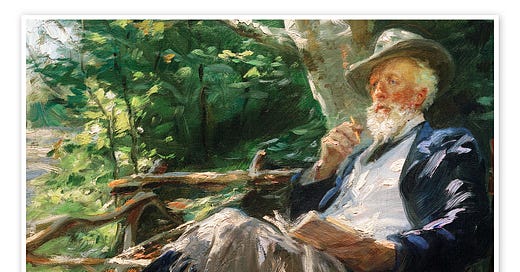



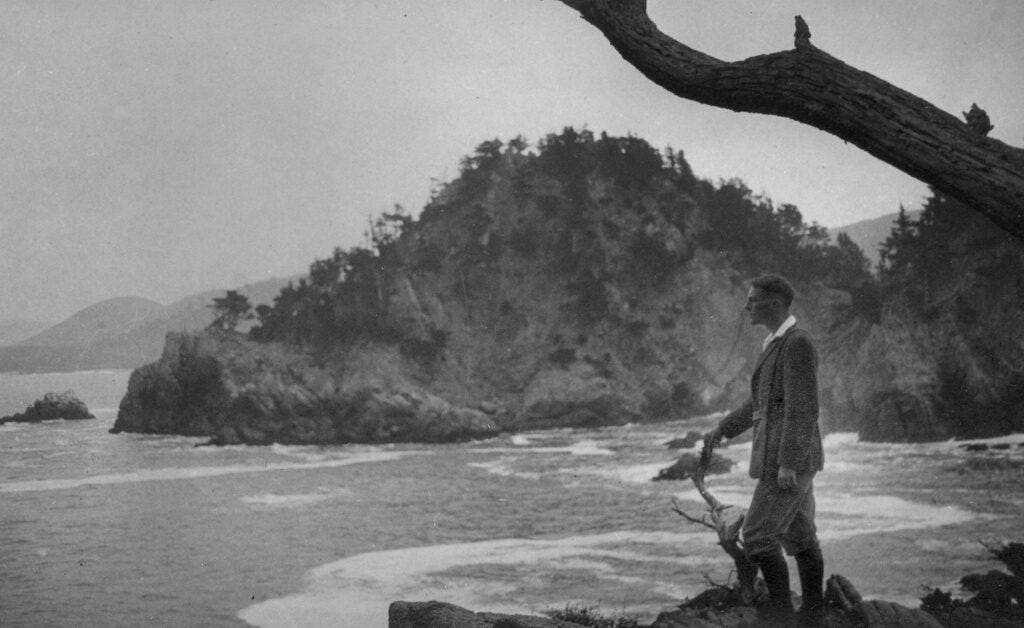
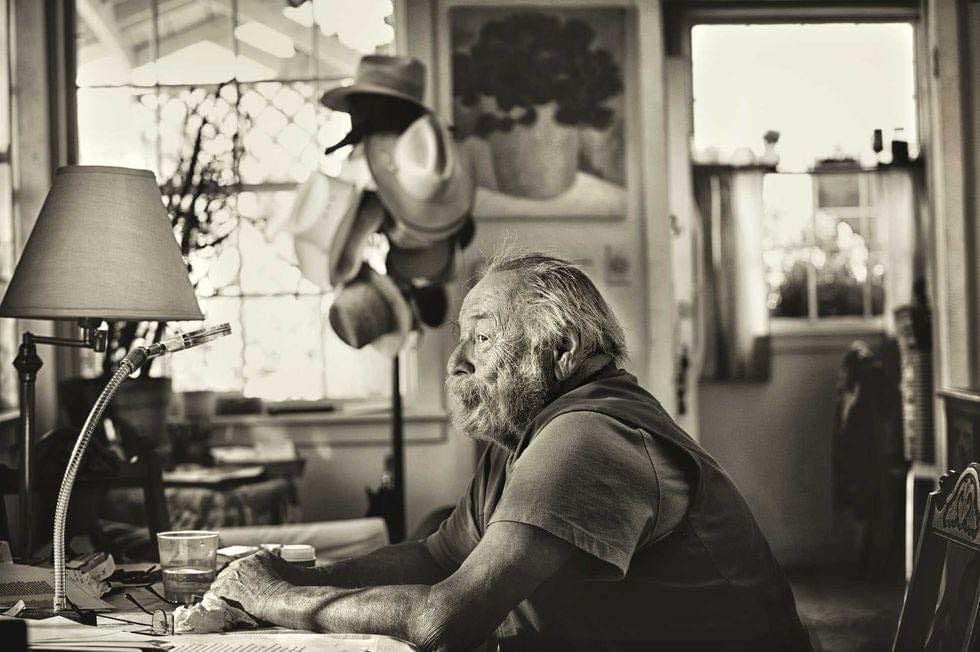
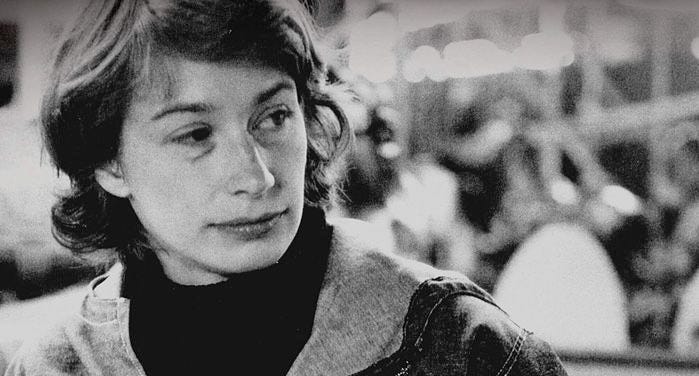
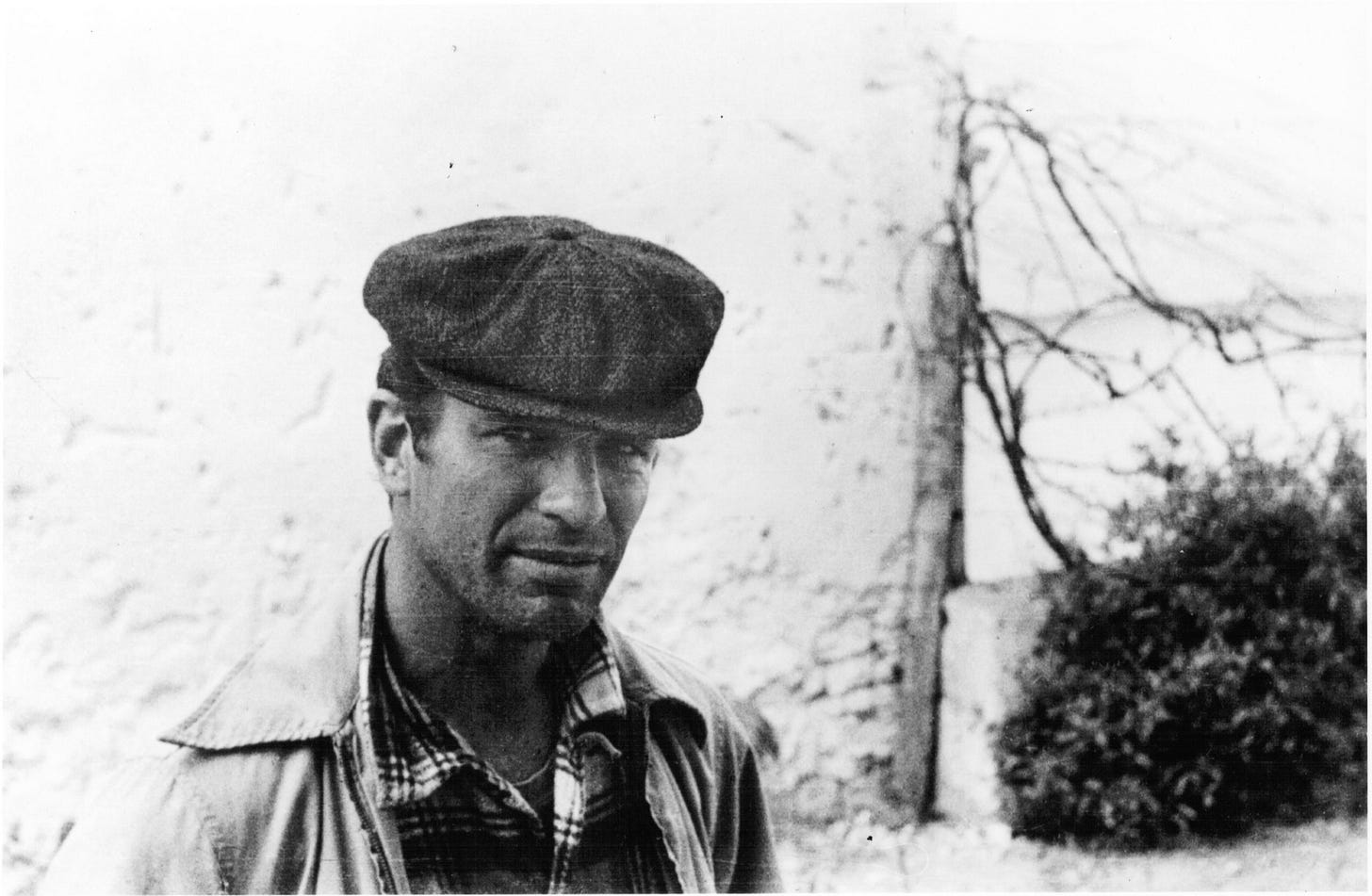
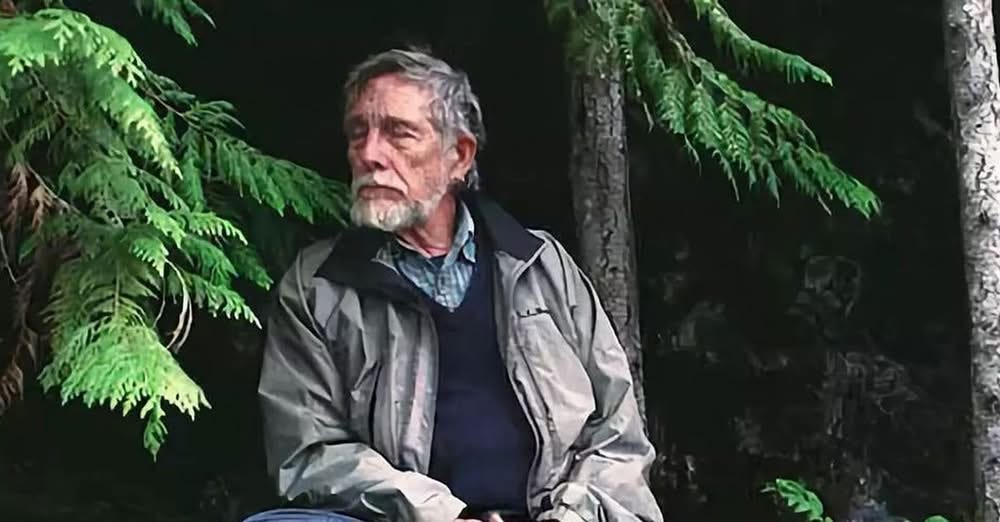
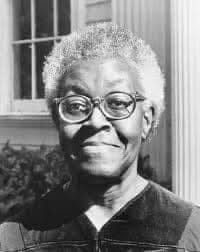
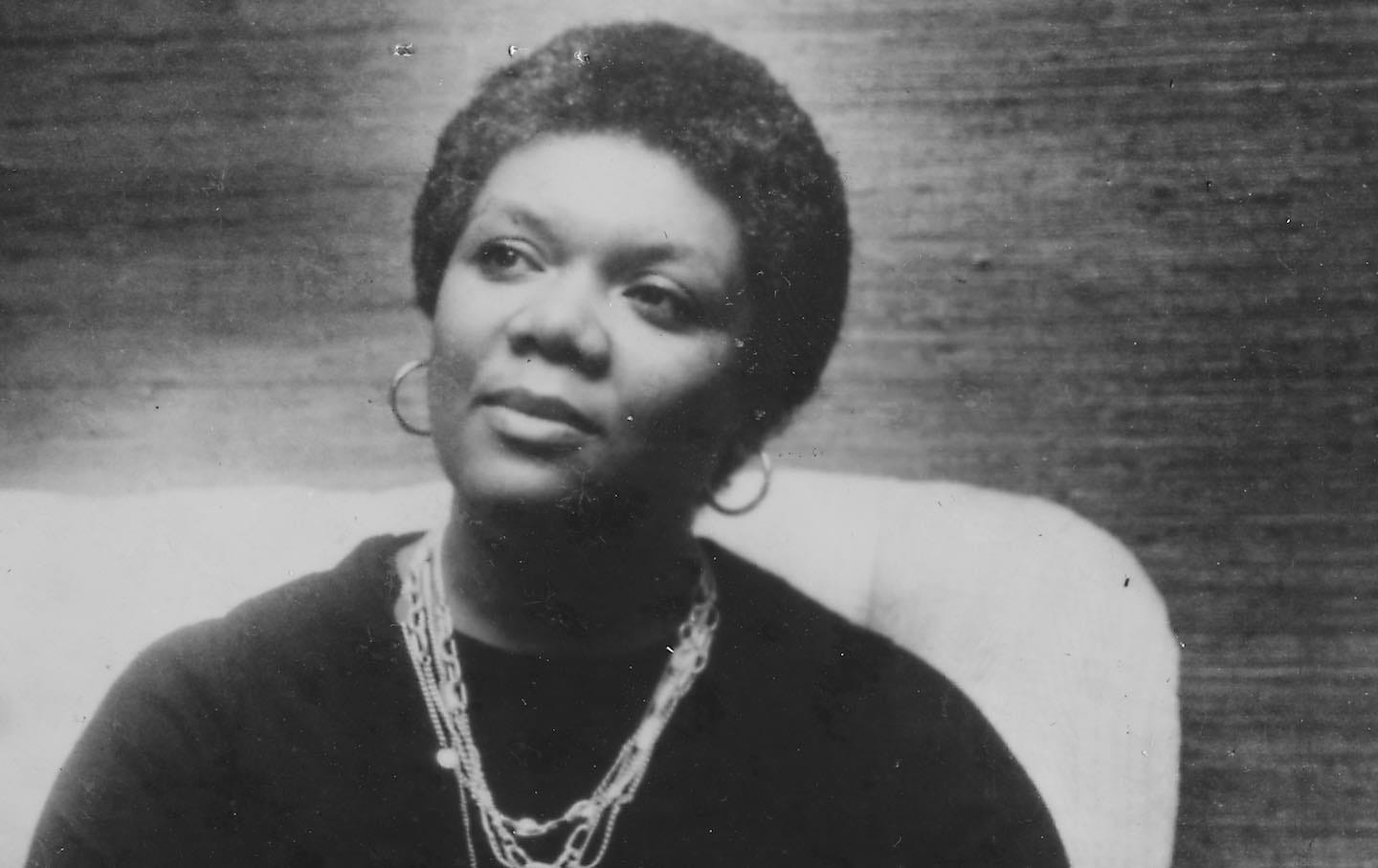
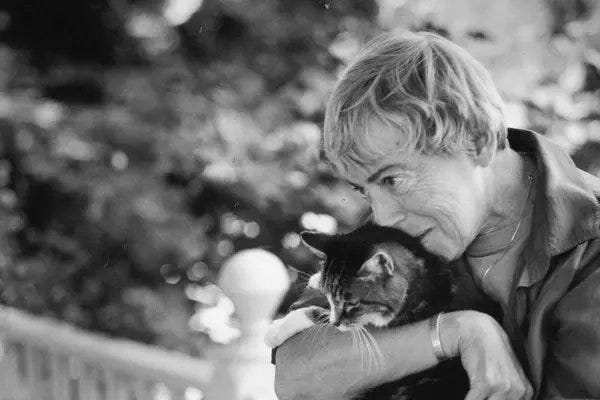

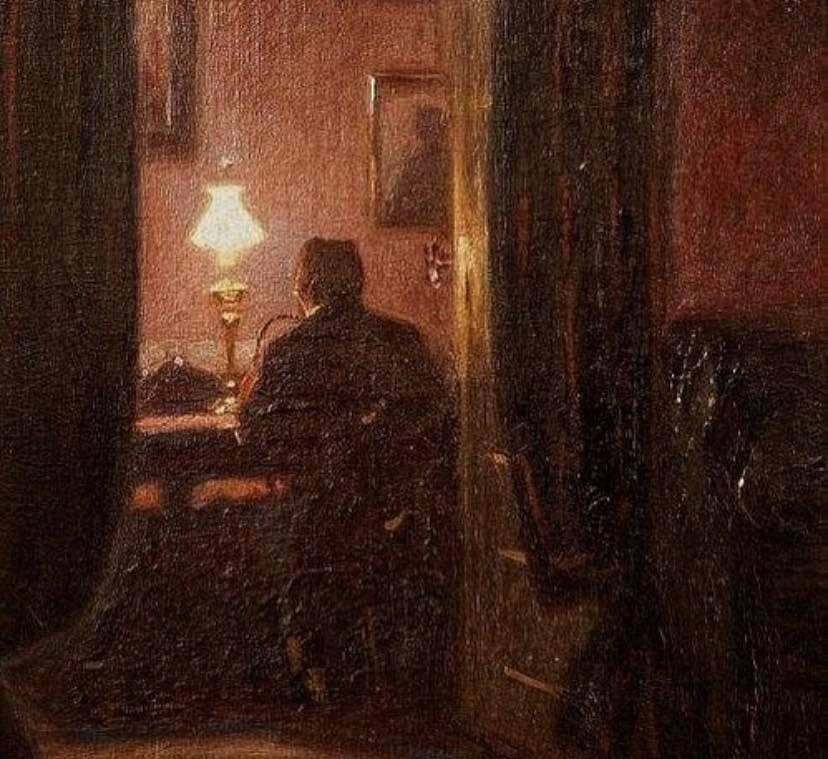
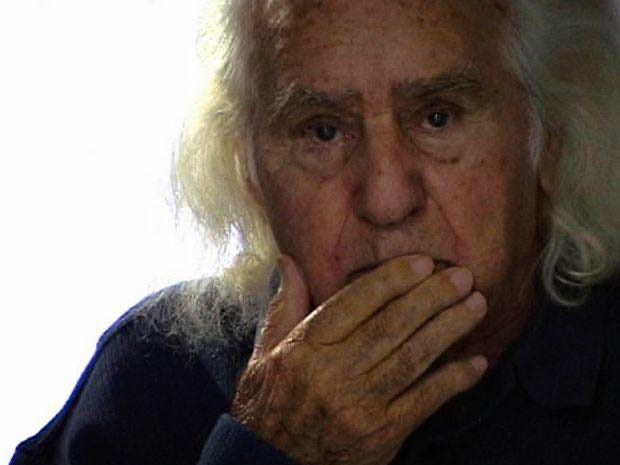
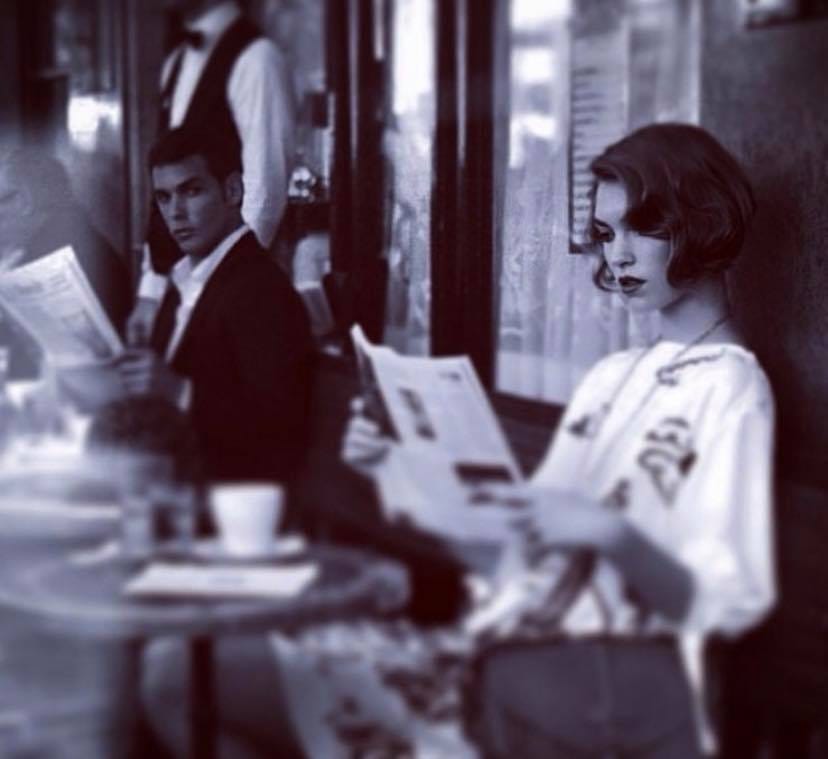

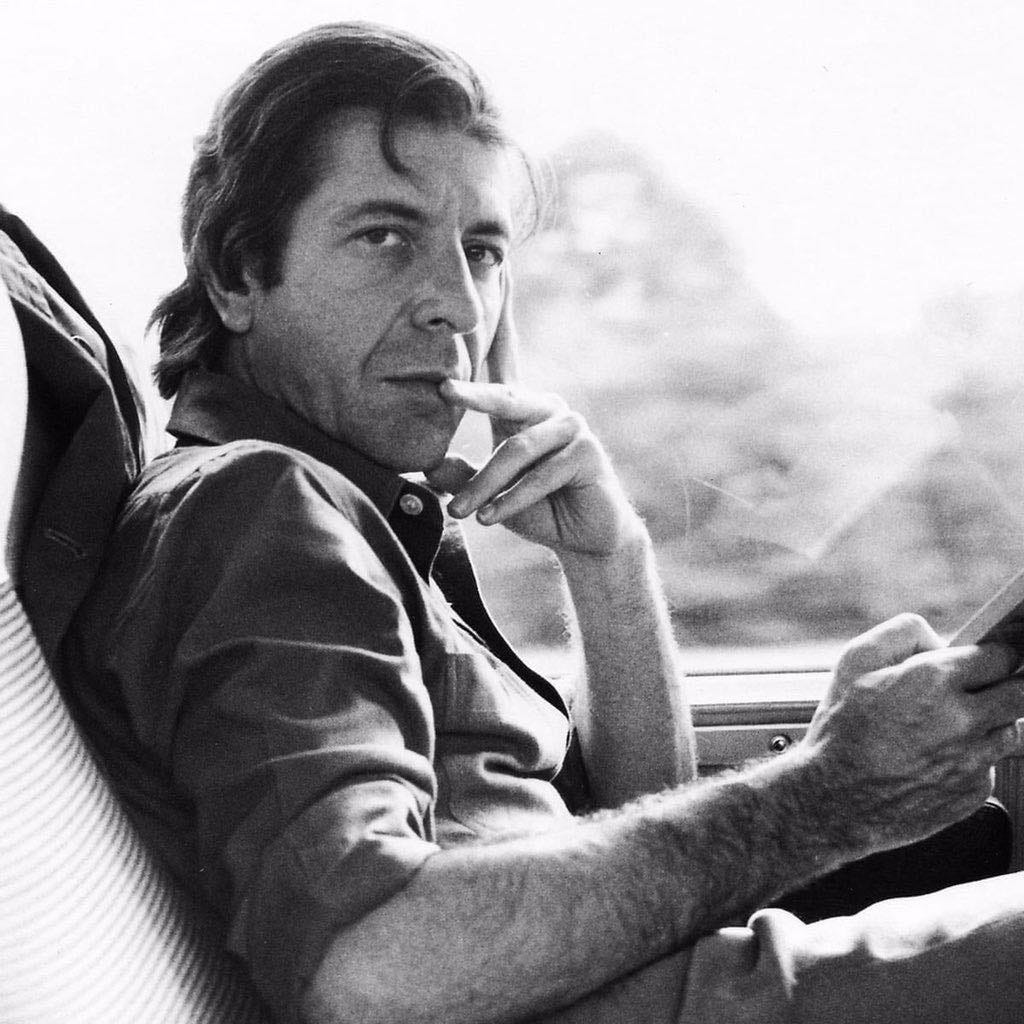
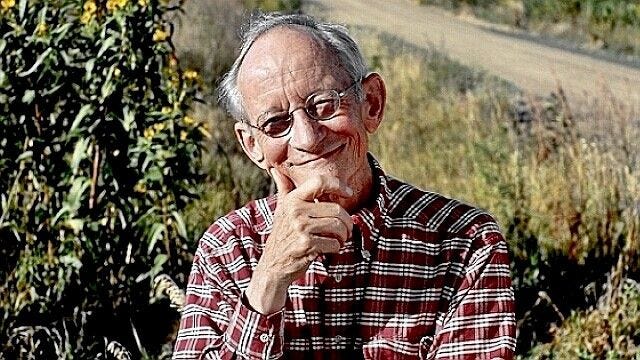
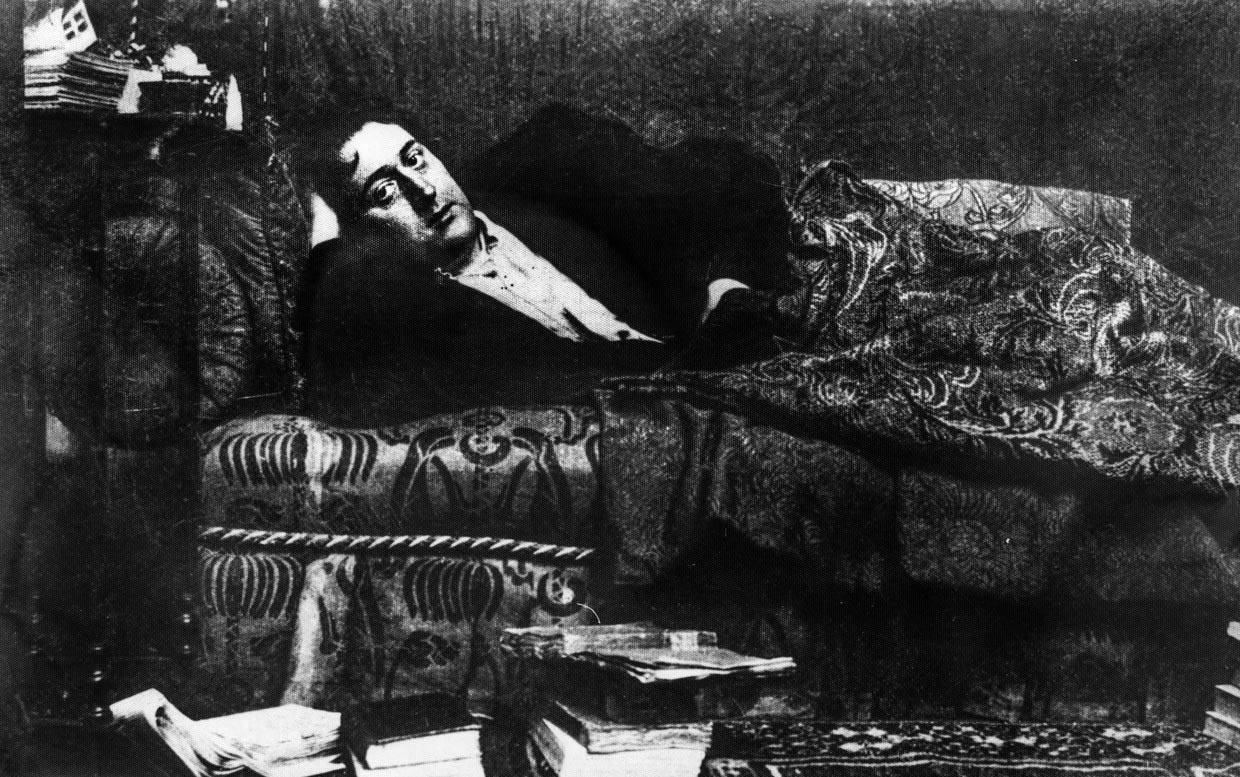
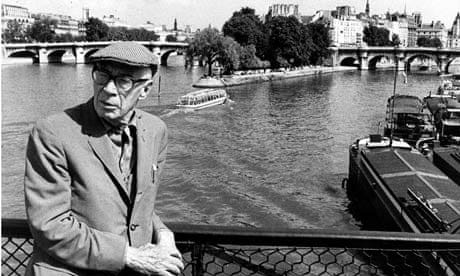

I have asked myself this question many times, Erik, and the answer I've come up with is this: to be a poet - a real poet, not a fake one seeking a career, fame and money - is primarily to be an agent of the divine, and that is enough of a reward for anybody. Poetry, as I see it, is the soul of the world. And true poets are its priests, serving something profoundly bigger than themselves.
Great article Erik! Great quotes.
“The essence of all true poetry lies in its ability to transcend the mask of the self, to rise above the facade of personality, and speak from the eternal soul within. It bridges the creator's solitude and humanity's infinite spirit, carrying the secret flame of one heart into the boundless unity of all.”
To me this is transformative healing. Transcendence of the self. The world needs more poetry!
Who said poetry belonged in the English department? Or to the english speaking world? Poeisis means to create. How does it not belong in physics or mathematics, in biology or philosophy. Poetry is all of this .Yes it uses words. It touches upon language. The failure of language is what allows poetry to exist. It leads us into understanding in the metaphor of wisdom. It lives outside of the literalization of prose. Are we truly writing poetry? Is it writing us?
Poetry has always been a part of us. Poetry appears to be built into the hardwiring of our brain. We are all poets. Unfortunately, many of us were introduced to a different approach to poetry. We were asked to analyze and interpret poems whose meanings were dressed up in the myth, the mystery, the metaphor, the rhythm, the sound, the tone and the context of the writer. We were asked to separate the subject and the object like we do in everyday language and prose. Poetry lives outside these dualistic limitations and lives in the space that may reside beyond mere consciousness. We enter into a poem. We are not separate from it. In poetry we enter into our own experience. Poetry is a mirror. The teaching of poetry in school often left out the most important piece. The missing ingredient in poetry is us!
In the end, poetry is what poetry does. It will bring different meaning to every reader who interacts with it, where it meets them. Whats good? What’s bad? As a writer we only truly write for ourselves. Thats healing. So the more people who enter into poetry the better. Bring on the poets!